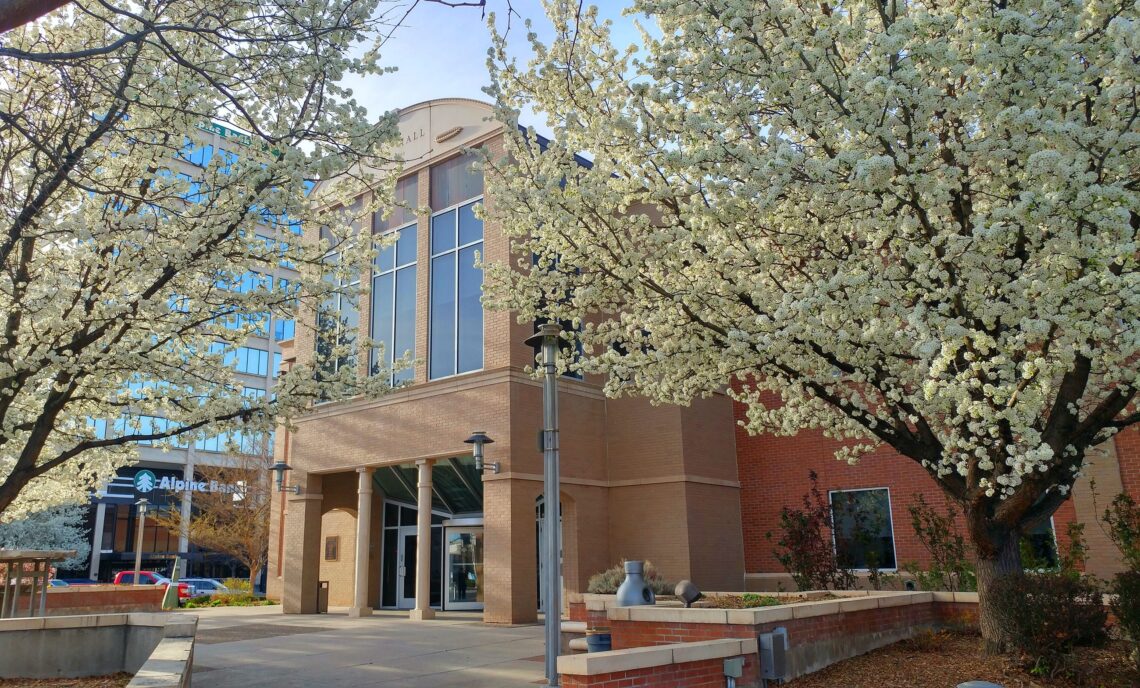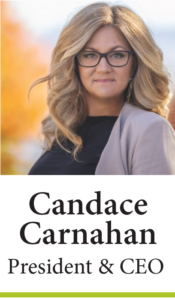
 When it comes to creating a vibrant and economically resilient community, sound public policy matters. And as your Chamber President, I believe it’s our responsibility—not just to show up, but to lead.
When it comes to creating a vibrant and economically resilient community, sound public policy matters. And as your Chamber President, I believe it’s our responsibility—not just to show up, but to lead.
That’s exactly what we’ve done over the past several months as the City of Grand Junction undertook a review of its impact fee structure. These are the fees that affect how and where our community grows—on both the residential and commercial sides. Done right, they help ensure growth pays its share. Done wrong, they can stall investment and hold back opportunity.
Last August, I was invited to serve as a key member of the Impact Fee Task Force convened by City staff. Since then, I’ve spent countless hours at the table, meeting multiple times each month with fellow agencies, City staff, and developers to find a balanced path forward. And as your Chamber, we’ve taken that role seriously—advocating for data-driven decisions that support smart growth without stifling it.
Much of our attention was focused on non-residential (commercial) impact fees—because these are the fees that impact businesses looking to build, expand, or even change the way they use their space. The initial draft included major proposed increases in Police, Fire, and Transportation impact fees, along with two entirely new fees: a municipal fee and a “linkage fee” based on the estimated number of employees per square foot. While well-intended as a tool to support affordable housing, the linkage fee quickly raised concern across the business community—it felt less like a housing solution and more like a job tax.
We knew we needed to bring facts to the table, not just opinions. So the Chamber joined forces with trusted partners—the Housing & Building Association, Grand Junction Area Realtors, and the Western Colorado Contractors Association—to commission a third-party study comparing the proposed fees to those in other communities we regularly compete with. The results were clear: the proposed structure, if adopted as originally drafted, would have made Grand Junction significantly less competitive. Fee increases ranged from as little as 5% to as much as 343%, with much of that driven by new transportation standards not currently used in our community.
To their credit, City staff remained open to feedback. I’m incredibly grateful for their willingness to engage and to truly listen—not just to the Chamber, but to all stakeholders. That openness led to an unprecedented joint workshop with City Council where we were able to have honest, productive conversations about the real-world implications of the proposed changes.
Those conversations mattered. As a result:
The Affordable Housing Linkage Fee was eliminated from the proposal.
The transportation fee structure was revised to use the design standards most of our existing roads were built to—making it less punitive.
The overall level of service assumptions were adjusted, which brought proposed fees back in line with current conditions.
But we didn’t stop there. One of the most troubling increases remained: a proposed 281% hike in Institutional Use fees, which includes medical facilities, child care centers, nursing homes, and churches. Many of these are facilities that our community desperately needs more of—not less. And pricing them out of feasibility through fees would only worsen the very challenges we’re trying to solve.
On March 5th, I brought this concern directly to City Council during public comment. I’m grateful that Council didn’t just listen—they acted. In response, they directed staff to re-evaluate the institutional category, and ultimately, the proposed increase was significantly reduced. That kind of responsiveness is what makes truly collaborative governance possible.
At the end of the day, because of this ongoing, intentional advocacy work, five out of seven non-residential fee categories actually decreased from their current rates. The Industrial Use category—originally slated for a 281% increase—now reflects a more reasonable 47% adjustment. That’s a big difference. And it matters for those looking to grow here.
This is what the Chamber does. We ask the tough questions. We dig into the data. We represent the interests of businesses, large and small. And we work collaboratively—with our members, with community partners, and with the public sector—to find solutions that move our community forward.
It’s not always easy work. But it’s essential. Because a strong economy doesn’t happen by accident—it happens when we get policy right. And that’s what we’re here to do.
I also want to extend my sincere appreciation to the City of Grand Junction staff. Their openness to feedback, their professionalism throughout this process, and their willingness to sit down with stakeholders—even when the conversations were hard—made a real difference. This process worked because we were able to work together.
We’ll continue showing up, speaking up, and leaning in—because that’s what it takes to keep our community thriving.
Candace Carnahan is a relationship-driven, solution-oriented leader with a passion for putting strategy into action. As the President & CEO of the Grand Junction Area Chamber of Commerce, she is committed to fostering a thriving business climate in western Colorado through advocacy, innovative partnerships, and forward-thinking initiatives that benefit the 800 local businesses the Chamber represents.
To learn more about the Chamber, visit www.gjchamber.org or connect with Candace directly at [email protected]
